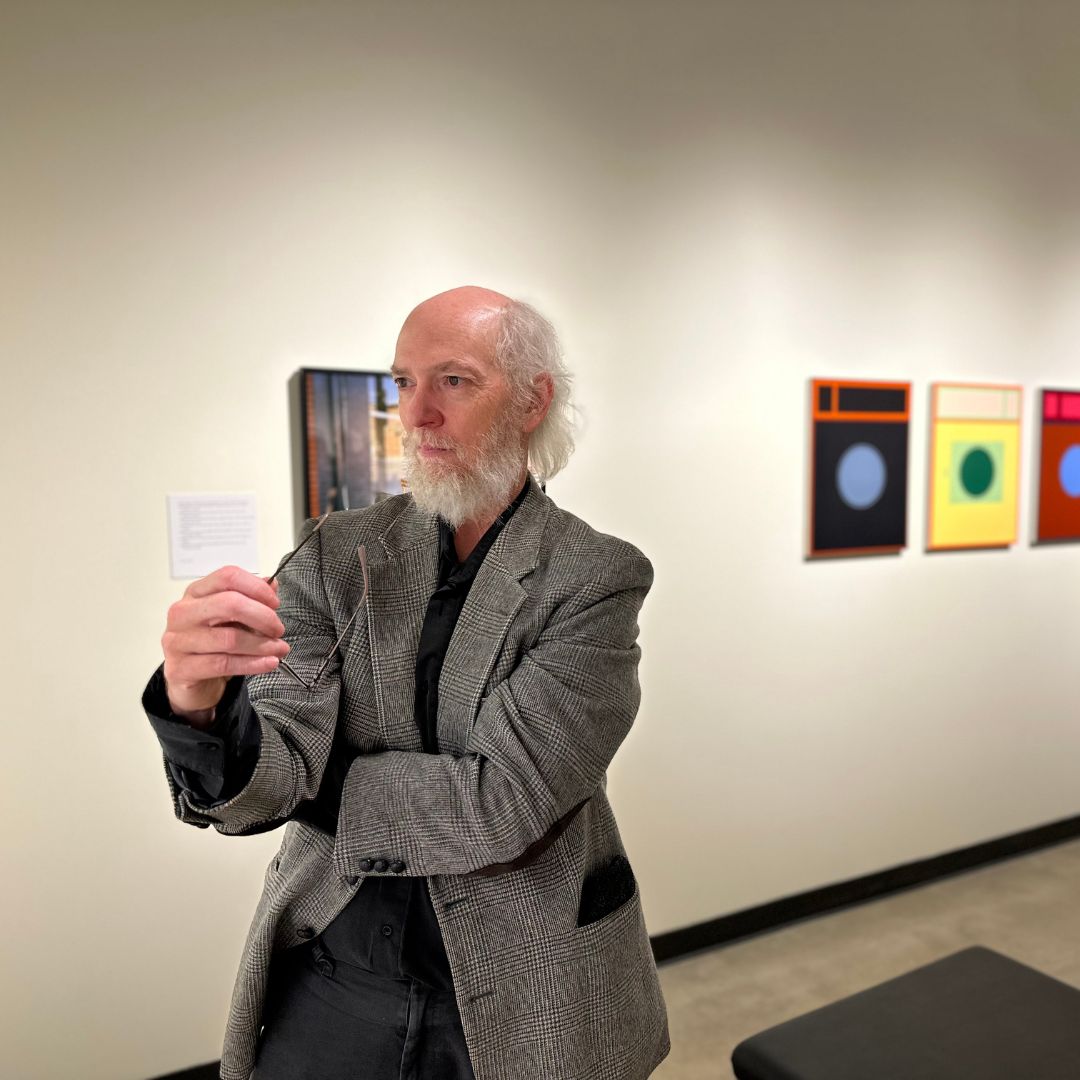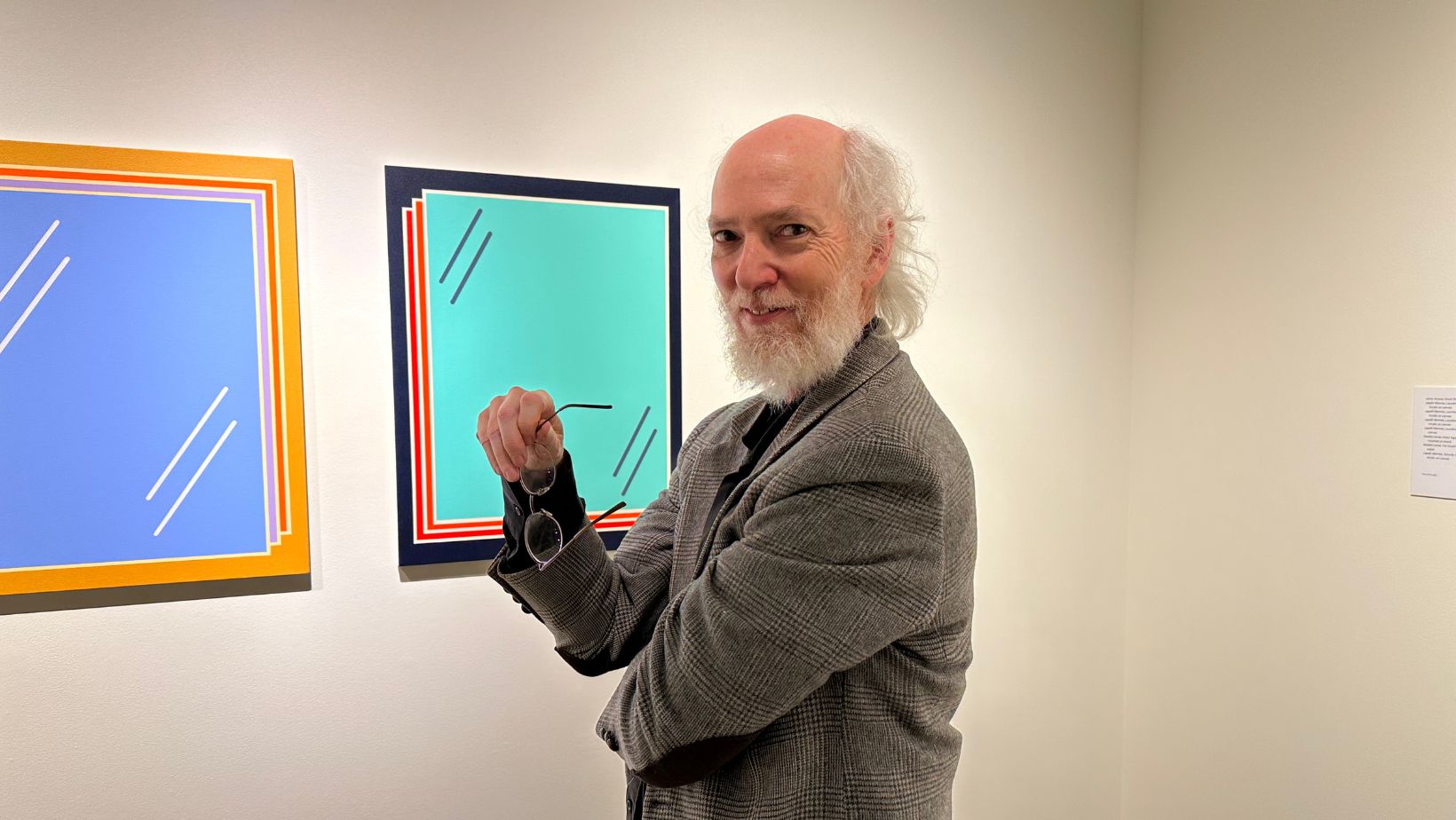Faculty Highlight
Rodger Jackson
Professor of Philosophy
Fall 2022
Tell us about your background in philosophy.
I was originally a theatre and dance undergraduate major. I left college after my sophomore year. I worked in dinner theatre in upstate New York, and then went out to Portland, Oregon, where I played music and acted. Then, when I turned about 27, I went back to my school, and I completed my undergraduate degree, but I chose to go into philosophy. I decided to apply to graduate school for philosophy. I attended Michigan State University, and earned my PhD in 1996.
What brought you to Stockton University?
If you get a doctorate in philosophy, it’s not so much a matter of choosing where you’re going to go, but going where someone chooses you. So given the highly competitive nature of the field, I thought, yes, Stockton would be fantastic. Where is Stockton again?
When you’re leaving and getting your PhD, you are often applying to a large number of schools. Joanne Birdwhistell, who was a professor of Asian Philosophy at Stockton and a well known scholar in the field, took me on a tour. I interviewed with her and the other two senior members in the program and they made the offer, so I gladly came.
What inspired the development of your general studies course on the Pandemic, GAH
2382?
I’ve always thought that one of the things that a university needs to be able to do is to respond to what’s happening at the moment. I teach Plato and Aristotle and all sorts of people from thousands of years ago. But I also think it’s important to keep your eye on what’s happening around you; and as a teacher, I think it’s important to create opportunities for your students to learn about what’s happening right now. I thought about what it would be like if I had been a student who had gone through the past two and a half years, and I imagined they might like the opportunity to get some perspective on all the craziness that’s taken place.
What is the focus of the Pandemic course?
When I was thinking about the Pandemic course, I thought about designing it in a way where we can show students how you can bring the lens of the arts and humanities to bear on one of the most significant events of your life, and in this case, the pandemic.
Many of the most important questions that arose out of the Pandemic are best handled within the framework of the arts and humanities.
For instance, if you want to think about what it would be like to experience this in another time and/or another place, you should have a historian as a guest lecturer. Professor Laura Zucconi, who will be the historian that comes in, had been saying all along, this is going to be a three-year process - she was able to do this in part by her own training and scholarship.

Could you elaborate on the significance of the guest speaker component of the course?
The guest speaker component of the course is a way of highlighting the extraordinary beauty of our School of Arts and Humanities, and all of these experts who have these amazing insights and training that the students can avail themselves of.
For example, Beverly Vaughn, who has been the director of Stockton’s Choral program for many years, and has performed and directed vocal performances her entire life, is going to talk about what it means to be a performer in a time of pandemic.
Visual artist Mariana Smith, will be talking about the way in which art during the pandemic expresses our shared experiences, as well as those experiences which are unique to the communities that we belong to.
I reached out to my colleagues and asked them if they would generously give their time and expertise, and they did.
What do you hope students will take away from this course?
I hope that the students will get a moment to reflect on, analyze, and critique these various elements in their life and the way it played itself out in their communities at the local, state, and national levels, and within their various cultural communities.
How do you think the Covid-19 Pandemic will affect the arts and humanities over the next decade?
The pandemic will definitely be a topic that all of the arts and humanities examine in depth over the next decade or so, but what’s interesting is that you can’t predict what will emerge from there. That’s the power of the arts and humanities: their disciplined use of the imagination and the techniques of their field to uncover and create new ways of looking at our lives. And when something significant, like a pandemic takes place, that provides all sorts of opportunities.



